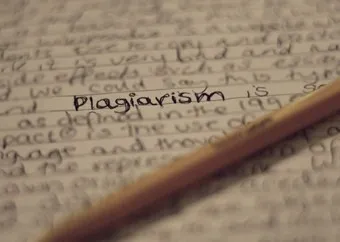Plagiarism, More of an Ethical Problem

Jaya Bhattacharji Rose, an international publishing consultant, writing about copyright (“Copyright Law: More than a Moral Obligation,” Businessworld website) says, “To explore larger issues surrounding copyright, and for publishers in general, management of copyright is a very important part of their business.” During a children’s book launch, Jaya snapped a few pictures and was surprised to find that it was used by the publisher without credits. When Jaya brought it to the attention of the publishers, they immediately corrected their mistake and attributed the pictures to Jaya. It was interesting to look at the publisher’s reply to Jaya’s message: “So sorry. It was a slip up as I had said that you should be acknowledged. But since that is not the usual practice — simply because no one had asked — it was overlooked.” Is Times of India not morally under obligation to attribute the logo it carried of WebSide on the Independence Day? [update: The editor at TOI called WebSide to apologize and have promised a quick solution.]
According the website copyrightlawmatters.in, which is a repository of information on Indian copyright laws, “Copyright, as understood today, is a creation of statute. It subsists in works such as books, and protects them by, among other things, disallowing their unauthorized reproduction, adaptation and translation. The right to do such acts is referred to as copyright, and is described in Section 14 of the Indian Copyright Act, 1957. It vests exclusively in the copyright owner — usually, the author of the work. ” It further adds: “The violation of copyright (referred to as copyright infringement) is a legal wrong in respect of which a civil suit may be instituted to seek the grant of a permanent injunction to restrain further infringement, damages, the rendition of accounts of profit, and the delivery up of both infringing copies of the work and the plates used to make them. If required, administrative orders such as Anton Pillar Orders may also be obtained to assess the extent of infringement.” Copyright infringement is a criminal offence liable to be punished with fine and imprisonment, or both.
“Plagiarism is primarily an ethical issue,” explains copyrightmatters.in website, adding, “Pertinently, Section 57 of the Copyright Act grants authors the “Special Right” to be attributed for their work. Widely referred to as a moral right, this right is perpetual, is independent of copyright, and remains unaffected by transfers of copyright ownership. Thus, the right to attribution recognised by statute could be considered analogous to the right not to be plagiarised.”
When I spoke to Vinutha Mallya, Editor at Mapin Publishing and who has studied copyright law, she said, “Online posts are covered by Copyright Law. Any medium that is public, where text is published, comes under the purview of the law, including the Internet now. Since they have proof (and the veracity in digital era is difficult since people can remove posts etc just like SI did on Twitter), their case can be proven without doubt.” SiliconIndia’s contention that they are a news site and hence enjoy the right to copy paste is without regard for law or moral obligation in the Lighthouse Insights blog issue that was raised by Prashant Naidu just a couple of days back.
Why can’t the people involved take a cue from Fareed Zakaria’s suspension after he accepted lifting passages from elsewhere for his column? We talk about America for everything that we don’t have. But when it comes to moral issues where America acts forthright, we evade under the carpet quoting Indian way of doing things. As the national Tamil poet Subramanya Bharathi said, we need to take good things wherever they come from.







